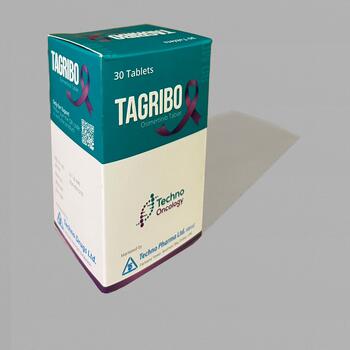卡博替尼,(Cabozantinib)20mg

1. Composition:
Cabozantinib is a small molecule tyrosine kinase inhibitor that belongs to the category of multi-targeted anticancer drugs. It is mainly used for the treatment of advanced renal cell carcinoma, thyroid cancer, and hepatocellular carcinoma, among others. Its multi-target action mechanism makes it a very effective cancer-targeted therapy drug.
2. Pharmacodynamics:
Cabozantinib exerts its anticancer effects by inhibiting the activity of multiple receptor tyrosine kinases (RTKs). The receptors it primarily targets include MET (hepatocyte growth factor receptor), VEGFR2 (vascular endothelial growth factor receptor 2), and AXL, among others. These receptors are closely related to tumor growth, angiogenesis, tumor cell proliferation, and metastasis. By inhibiting these enzymes, cabozantinib can reduce tumor blood supply, suppress tumor cell proliferation, and induce tumor cell apoptosis.
3. Usage:
Cabozantinib is usually taken orally in capsule or tablet form, with the recommended dosage varying depending on the condition:
- Renal cell carcinoma: Recommended dose is 60 mg once daily.
- Hepatocellular carcinoma: 60 mg once daily.
- Medullary thyroid carcinoma: 140 mg once daily.
The medication should be taken on an empty stomach, at least 2 hours before or after eating. During treatment, regular assessments of the drug's efficacy and side effects are required, and the dosage should be adjusted to suit the individual patient's tolerance.
4. Research and Development History :
Cabozantinib was developed by the American biotechnology company Exelixis and was first approved by the FDA in 2012 for the treatment of advanced medullary thyroid carcinoma. Subsequently, its indications were expanded to other cancer types, including approval in 2016 for renal cell carcinoma and in 2018 for hepatocellular carcinoma. With ongoing clinical trials, the potential indications for cabozantinib have further expanded.
5. Mechanism of Action :
Cabozantinib is a multi-targeted tyrosine kinase inhibitor that can simultaneously act on multiple tumor-related signaling pathways. The main mechanisms include:
- Inhibition of the MET receptor: Overexpression or activation of the MET receptor is common in many tumor types. Cabozantinib inhibits MET, blocking its downstream signaling pathways and suppressing tumor proliferation and metastasis.
- Inhibition of VEGFR2: By blocking VEGFR2, cabozantinib reduces tumor angiogenesis, cutting off the blood supply to the tumor and thus limiting its growth.
- Inhibition of the AXL receptor: The AXL signaling pathway is associated with the resistance and invasiveness of tumor cells. Inhibiting AXL with cabozantinib helps reduce tumor metastasis.
6. Summary:
Cabozantinib is an effective multi-targeted tyrosine kinase inhibitor with significant efficacy against various cancers, including renal cell carcinoma, thyroid cancer, and hepatocellular carcinoma. By blocking multiple cancer-related signaling pathways, it can inhibit tumor growth, angiogenesis, and metastasis, providing a broad spectrum of antitumor activity.







